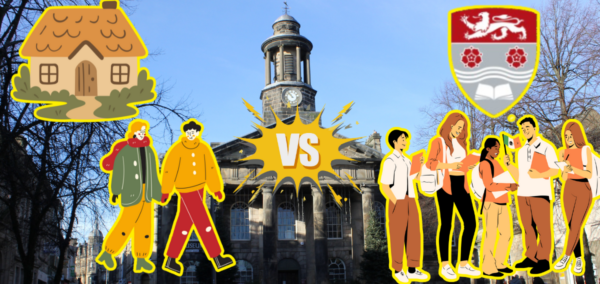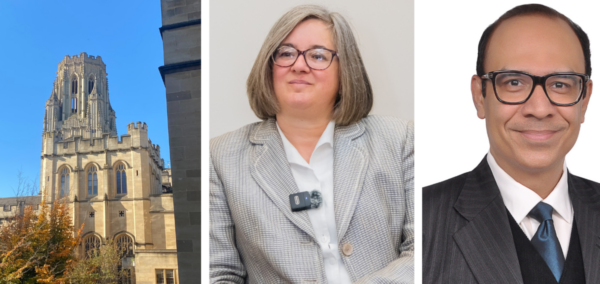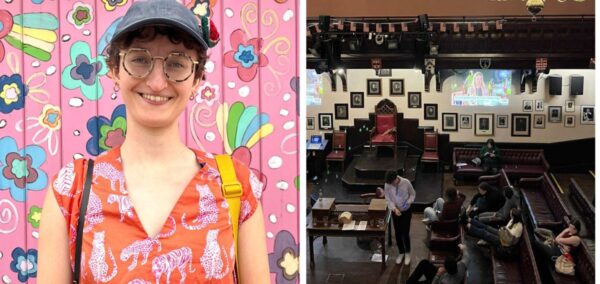
Here’s what I learnt coming back to Liverpool after my year abroad
It’s strange feeling like a foreigner in your own city
In August 2021, I arrived in the city of Lyon to embark on a year-long study abroad programme at a law school. After completing my year and spending a couple of months working there in summer, I returned to the UK properly at the end of August 2022. Despite the impending inevitability of returning home, no one quite prepared me for the difficult readjustment to living back in the UK.
Yes, this is my home country, I grew up in the UK and spent 20 years here before moving away to study abroad for the year, but returning didn’t feel as seamless as I had anticipated.
This isn’t just an opportunity for me to describe how “difficult” my life is after spending a year in a beautiful city, eating great French food and drinking rich Côtes du Rhône wine. I’m not looking to self-indulge in pity or burn every bridge I have in the city of Liverpool by ranting and raving about how much I dislike the UK.
Instead, I want to share my experience in the hope that you can find some point of identification in this — whether that be for a student who has come back from a study abroad programme or as someone who knows a friend going through this process. I want to help you work through this great wave of confusion.
‘So, when I was in France’ – returning back is misunderstood
Most Read
I often see TikToks or Twitter replies of people essentially shitting on others for travelling and seeing new places. The archetype of “rah, I went to Thailand last year and now I meditate every morning” often gets ridiculed. I mean, of course, they’re going to talk about their experience, it was their normality for a whole gap year.
However, studying abroad, or even a work placement abroad, has the feeling of functionality to it. You still go to university or work whilst abroad – that functional part of your life remains the same. It’s easy to think that a student studying abroad is just going through the same motions as a student in Liverpool. Well, it’s not quite as simple as that. There’s a whole climate around being abroad. However, once that comes to an end, it’s hard to find solace back in your home country.

From Lyon to Liverpool (again). I spent 14 months away from Liverpool.
Even though Liverpool is a city I lived in for two years prior to studying abroad, in fact, it’s a city I know well and have a good support network in, it’s not felt like home again. Even now writing this four months after returning to Merseyside, I’ll admit that I’ve been struggling to find peace of mind.
Reverse culture shocks
This is a term used by psychologists to describe the experience of returning after travelling abroad. I haven’t just made this up, this isn’t just something crafted by people who get sad after spending a week in Santorini, it’s a real phenomenon. But, what does that mean: reverse culture shocks?
Well, it’s all about returning to the familiar after having redefined your scope of familiarity. Simply put, when returning to your home country, you get reunited with a whole new journey of culture shocks, even if it’s what you should be used to.

For me, this sight became part of my routine as it was just around the corner from my apartment
This is exactly the crux of the problem. The journey to feeling comfortable again in your home country is one that is underestimated. I guess we all assume that coming back to a country where we’ve spent most of our life is as easy as ABC. Well, no. In the same way, it took time to establish yourself abroad, it’s the same process of re-establishing yourself in your home country. If anything, it feels more alienating because it feels almost paradoxical having to find your feet back in your home country.
However, by breaking down these feelings, we can start to better understand this whirlwind of emotions, regret and anxiety. Helpfully, the US Government actually has a guide for coming to terms with reverse culture shock. It breaks it down into three steps:
- Accepting that home has changed
- Accepting that you have changed
- Accepting the reality of re-adapting to a new culture
Reflecting on change
After having spent a year or a semester abroad, an awful lot of change has happened.
Firstly, home has changed. This change is the most dramatic and the easiest to define. Almost overnight, you switch Carrefour for Tesco, SNCF for National Rail and Avenue Charles de Gaulle for Vine Court (for legal reasons, that’s not my actual address). This feels disorientating. After not living life in this British network for one year/semester, now you just return to something that feels distant yet painfully familiar.

“Alexa, play Ribs by Lorde”
In your time away, things have changed in your home country. There will be new shops open on Bold Street, new beers on draft at your favourite pub or more emotionally, your friends back in Liverpool will have gone through a whole year without you. It’s like life went on in a place where you should be a part of it.
Similarly, you’ve left behind a life that was home for a long time — you know the streets, you get the local culture, and you forged a network of friends. That can only be described as home. Your routine of living is often more homely than the physical place you live anyway. However, after spending a long time abroad there, it is a gut-wrenching feeling to leave that all behind, believe me.
The difficulty of describing somewhere as ‘home’ upon returning to the UK is tough, especially at university where people often construe their hometown as their ‘home’.
Yes… and how does that make you feel?
Now let’s focus on personal change — how have you changed? Studying abroad is a big opportunity for personal growth. Moving abroad to a foreign country isn’t easy. There’s paperwork needing done, a new culture to adapt to, and often, a new language barrier in place. For me in France, all three of these were challenges I needed to get to grips with during my first few weeks abroad.
However, as you overcome these challenges in a new place surrounded by new people, you learn an awful lot about yourself. Simply put, every day studying abroad feels like a triumph.

I soon found out that having a mullet in France was a faux pas
Even when living abroad, or travelling in general, you push your parameters of preference. You discover more about what you like and what you don’t like. You become exposed to a hell of a lot of different things. Sometimes, though, these parameters get reflected in your home nation’s culture. From something as trivial as “I like the orange juice here more” to “I think the discourse surrounding social class here is more dogmatic”.
There are a lot of thoughts running through your head on returning in part to this great personal and emotional change that happens abroad — I felt like I was taking a step backwards by coming back to the UK. However, reflect on this experience and take the opportunity to appreciate that you have changed for the better.

Awh, friends, study abroad friends!
Re-adapting to Great British culture (whey!)
The process of readapting is tough. Especially when you have people getting fatigued around you hearing about how life was back in your host country abroad — something along the lines of, “it wasn’t like this in France”.
https://t.co/qyqvGS2x0l pic.twitter.com/notNPRIn41
— ewan wilson (@ewanswilson) December 31, 2021
Re-learning a life you began to forget is tough. For instance, I completely forgot how much reading British university expects from their students, I forgot that supermarkets were open after 8pm and I forgot how much people drink here on a night out. Even though I was used to this all before I went to France, the sight of them felt alien, like I myself was a foreign exchange student here in Liverpool.
To be honest, I felt disenfranchised from my own culture for a year (and a bit). Re-adjusting in this department when everyone expects me to get back to normal is strange. It’s only made more difficult when mixed with the nostalgia of comparing British culture to the customs of your host nation abroad — it’s tough to reconcile in your new-found reality in the UK.
Parting words
By compartmentalising the confusion of returning back to the UK, I hope that the greyness of readapting to life in Liverpool again makes more sense. As I’ve said numerous times in this piece, it’s not an easy thing to do, even if it seems so simple on paper.
However, take some time to reflect — be proud of the change you made in forging a new life, seeing new things, and places and leaving your comfort zone as a whole. If you can do all of that once abroad, you can do it again. At least, that’s what I try to tell myself.
Related stories recommended by this writer:
• People have discovered this chaotic Liverpool house and I’m obsessed
• Things about being a Liverpool student that would send a Victorian child into a coma
• I travelled to 15 countries last year as a Liverpool Uni student, here’s how you can too

















